‘No reason clinical trials cannot be done in Nigeria’
Prof. Folakemi Odedina is a cancer scientist and the convener of the first ever Clinical Trial Congress to be held in Nigeria on November 14-16. She is also the foremost researcher in prostate cancer among US blacks and has been at the forefront of studies which seek to find out why black men all over the world have the highest incidence, mortality and morbidity from prostate cancer. In this interview, by NHO Editor Sam Eferaro Prof. Odedina speaks further on her research work and why she’s organizing the Clinical Trial Congress in Nigeria. Excerpts.
You have been out of the country since 1988, now that you are here, what have you found out, especially in the area of prostate cancer?
Interestingly, people think it’s because of my Nigerian background that I’m looking at prostate cancer in Nigeria. It’s just per chance. My research focus started looking at the US blacks so, I’ve been working in that area for several years. In 2004, I got a grant from the US Department of Defense.
The military?
The US Department of Defense has a special cancer research programme. There are several agencies and organizations that fund research in the US. One of them is the Department of Defense and it doesn’t have anything to do with the military. It’s just that prostate and breast cancer survivors and advocates lobbied very strongly to have research that focuses on new discovery on cancer in the US.When they lobbied, they wanted to have a place that is different from the National cancer Institute. Now, the greatest funder of cancer is the National Cancer Institute. They (survivors and advocates) lobbied because they wanted a place that would fund highly innovative scientific discoveries that would give us a high link into what is causing cancer.
So, in 2004, I got funding from them (Department of Defense) and as part of the funding which focused on looking at prostate cancer in black men in the US we have what we call the Town hall Forum and we brought experts and they talked to men with prostate cancer and those at the risk of prostate cancer in the age group between 40-70. The Townhall at that time was in 2015. One of the men in his late 30s – very early to have prostate cancer – asked: “I have two African friends and I’ve never heard any of them talk about prostate cancer.” He then asked whether prostate cancer was only high in the US blacks. “Do Africans not have it and if they don’t, how can that be since the US blacks came from Africa?” I had seven experts on the stage and no one could answer that question because we were not studying Africans. We were only studying the US blacks. Even at that, we didn’t divide them because we had African immigrant blacks and Caribbean blacks in the US who were not being studied so, we could not answer. So, I said to him ‘We don’t have an answer because what we are doing is research-base. Because I’m originally from Nigeria, I could easily go on sabbatical to see what the status of prostate cancer is in Nigeria.’
So, I took a sabbatical and applied for a full bright and I was sent here by the department of defense. I had affiliation with the Ministry of Health, from (Ex-Minister) Prof Eyiatyo Lambo’s office in 2006. That was when I started looking at prostate cancer in Nigeria, comparing it with prostate cancer in the US blacks. It’s been an interesting programme. Few years ago, what our research discovered is that prostate cancer is highest in US blacks – native born blacks – but the death rate is highest among the Caribbean, especially the Jamaicans while we have the African blacks as the third among the blacks.
We thought they were doing good but we realized that it’s just not that Africans or blacks of the West African descents doing good but because we don’t have research data. There’s no major screening going on in Nigeria for example, so if screening is not going on and people are not detecting prostate cancer early what we are getting are people at late stage of prostate cancer. Essentially we don’t know what is going on.
Fast forward to 2014, I got another grant from the US department of state funded mainly by the department of defense and the National Cancer Institute. This grant focused on blacks in Florida. If we are looking at Florida we are then going to divide it up into US blacks, African immigrants and Caribbean immigrants. That was what we studied. We found something that is now of concern to us in Nigeria and we have published the data: African immigrants actually get prostate cancer at a younger age, compared to US blacks and compared to Caribbean blacks and majority of them are Nigerians. It is now mirroring what we have in breast cancer which means it’s likely that Nigerian men have prostate cancer at a younger age but we are not doing research and that is of concern to me.
That’s why I’m so passionate about research. I think care is good, I think people talking about care is good, people talking about treatment is good, detection is good It’s all good but I tell you, the only thing that can drive us to evidence-based medicine is research. You think about it, majority of the drugs and treatment and the diagnosis, whether for breast cancer or prostate cancer, whatever we are using for cancer, they were tested and found to be okay in whites. Even in the US, we struggle to have blacks, Hispanics and other minorities being in clinical trials. So of these, the therapies are tested and found to be good in white people and they are brought here in Nigeria with Majority black population. Knowing that our genetic make-up are different, what do your think is going to happen? We are using the white man’s drug therapy to treat a black population.
This is the age of precision medicine. This is the age of personalized medicine. This is the age of genomics. We are supposed to use our DNA to find what is best for us and use it to treat us. That is not what is happening and this is why I’m very passionate about developing research. It is evidence-based research that is the only way we can appropriately address cancer in this population.
And we are not doing much of that in this country?
Unfortunately, we are not doing much of research. We are blindly using what is developed in other countries to address it. Take the simple issue of PSA, there are two main ways that you screen for prostate cancer. One is the digital rectal exam in which the doctor uses a glove finger to kind of go through the anus and feel. The other way is the PSA which is just to take a blood test and read. The PSA numbers that we have in Nigeria is all over the map and we are using the one which the US and maybe the UK uses so there’s no reliability or validity. We have to see what PSA measure we should be using that is reliable to detect prostate cancer in Nigerian population.
So what we have been doing is trial and error?
I will say it’s trial and error. Clinical trial is the goal standard for you to be able to develop therapies and intervention for a particular population. Once you use clinical trial, you are able to say it’s great when a drug is developed let’s say in the US, that trial is specific to that population. But when you bring it to Nigeria, you have to repeat the clinical trials here. We have to see – does it work in you? Does it work in the population not only whether it works in you. Think about it and look at how diverse the Nigerian population is. We have to make sure it works for all the different people within the country so we have to make sure we have the population in the East, West, North, South, Middle Belt and wherever we are. We have to make sure it’s okay for the Yorubas, the Ibos, the Hausas, the Itsekiris – from different genetic makeup. We have to have that diversity of people and test under a clinical trial before we say it is okay but that’s not what is happening. What is happening is that we just bring the drug and start using.
I do know that before a pharmaceutical company introduces a drug in this country it has to do a clinical trial…
Majority of what they do does not start from Phase 1 or Phase 2 of their trials. It’s towards the end. Sometimes it’s post marketing surveillance in which you say ‘lets just try the drug and report.’ But think about it, if you introduce a drug in Nigeria, how many people will think it’s that drug that is making them throw up or have stomach ache? Even if they do, how many know where to report to and how many people will bother to contact their physician?
The issue is: will the pharmaceutical companies be vested enough to do these clinical trials? This is one of the reasons we are having the clinical Trial Congress in November 14-16 at LASUTH and Sheraton Hotel. That conference is not only for Nigeria and Africa. It is because as a black population, we are not represented enough in clinical trials. We are not represented enough in the US, the UK and we are not represented at all even in Africa. So that congress is going to focus on the best practice for clinical trials in blacks globally. When we are talking about putting it together, as the convener, I said to myself ‘which is the greatest black population in the whole world? Nigeria.’ So how can we start a congress that is looking at Clinical trials in blacks and the place where it holds first would not be Nigeria? In addition, we were being strategic to make sure that Nigeria and Africa listen to the fact that it is time we start having clinical trials in our population so that the best drugs, the best interventions, the best screening, the best diagnosis that fit our genetic make-up is provided to us.
When you talk about clinical trial, you will have to do a lot of public awareness because we’ve had issues in this country before now such that when you talk about it the first thing people think about is being used as guinea pigs…
I’m so glad you mentioned that. We had the same problem in the US. Whenever I’m invited to talk about clinical trials in the US, I tell them ‘I want you to choose one of two things: One, you participate in clinical trials under a controlled environment in which they make sure you are okay, everything is fine and then they find the best therapy, intervention, diagnosis or Two: Whatever is being tested for you and for your population, you say ‘No” – even when you say No, if that drug goes through, you will still use it.’ Then you are the guinea pig when you are not under control. Which means the drug could fail in you. So because of an unnecessary fear of not having that drug to make sure that it deals with you, you are now going to be a guinea pig when they make what is called post-marketing surveillance that is after the drug is approved and everybody starts using it.
Now, imagine this part: if one country called Nigeria say ‘I don’t want to be a guinea pig so let’s not participate’ and the drug is introduced and now you have to do post-marketing surveillance and everybody start dying like rats because the drug is not for you or is contra-indicated in you or it has some contraindications with the food we typically eat or with other drugs or other diseases we have? Suppose that drug, because they did not take into consideration black people who have all these co-morbidities in the clinical trial and then during the post-marketing surveillance, everybody start dropping like rats? That is my position. My other position is: I understand but participate with people you trust, For instance, in the US, there is no study I do in Florida that I don’t have people to participate. I’ve been doing this in the state of Florida for about 20 years. People know that if my name is behind it, they trust me because I do so many things. I make sure I follow the ethics of human subjects. Also, when you do a study with us, I make sure you get the result of the study.
As part of the conference, we are having, we are going to do community awareness about clinical trials. We are bringing advocates, people who are cancer survivors, people who have been working in educating people on clinical trials from the US. We know we have to do awareness, not only among the people that are going to be participating, we have to do it among physicians, other health care providers, among scientists, among the pharmaceutical companies – to let them know we are getting ready- and among the regulatory agencies. Everybody needs to be part of this big awareness and I do hope we will do it among government agencies, especially those that have the potential to fund these research because it is affecting them too.
I laugh when I see our government officials going to India to get treated. What do you think? The things they have in India was developed for their population. We have outstanding providers here and you are going to India to have somebody who specializes in treating Indians to treat you when you have outstanding physicians in Nigeria who specialise in treating you. It’s just because they are not given enough resources so we have to start investing in research, it’s just too important.
I’m one of those who speak against the way we do clinical trials here. I once saw a centre in Kent, UK and the experience was mind boggling. A whole ward in the state hospital was dedicated for the care of the participants. The garget there are not what you see in the best teaching hospital here and the participants were being monitored every second. You don’t see that here rather, the companies just give sample drugs to doctors to test on people. I guess that’s the post-marketing surveillance you mentioned…
Things have changed for the better but I won’t tell you we are there yet. I was in South Africa for about six weeks this summer at the University of Cape Town. If you see their clinical trial centre, your mouth will drop. Their centre is much better than some of the centres in the US. They have a 4-storey building that deals in clinical trials at different levels. So there are things that are changing. Even in Nigeria, they now have CROs that now monitor to make sure that clinical trials are done well. There are processes, there is technology, there’s now the ethics that can monitor. I’m not saying we are 100% there but I’m saying that we are now getting ready, that Nigeria can be trusted. It may not be all the sites all over Nigeria but there are some certain sites that are now putting their efforts in doing that – not only sites but they are having collaboration with people outside the country and those people that they are collaborating with will not ruin their reputation. I’ll give myself as an example. I’m a professor at the University of Florida. I also lead multiple centres. I’m the programme director of several Federal-funded centres at my institution. I’ve put in almost 30 years in conducting research. I’m not going to ruin my reputation.
The excuse we hear from people and companies not conducting clinical trials here is because of the country’s poor infrastructure – no regular power supply so it’s difficult to freeze things, no water and several other things so they prefer to go to Kenya, South Africa and so on…
That is an excuse and it’s a lie. I really hope that Nigeria will get to a stage that they tell people ‘Don’t bring your drug here if you don’t do your clinical trial here.’ I don’t care if you go and do it in South Africa but are they Nigerians. If you do it in Ghana or Kenya, are they Nigerians? You need to prove to me that whatever you are coming up with, is safe and efficacious in Nigerians, there is no excuse. I’m sorry. Has anybody been to Covenant University? That University is the site for our genomics and bioinformatics, they have light all round. At LASUTH there’s a place where bio barb can be done that has light all round. It’s a private and public partnership between LASUTH and that particular lab. At Obafemi Awolowo University – this is not part of our consortium – but there is another consortium that has bio banking going on and they have light all round. There’s a lot that we are doing that if I sit here with you till the end of the week, you will be amazed. We just now finished a training programme on webinars now on YouTube that was created during summer – ten different webinars of different people providing information on clinical trials geared towards Africa. Majority of them are the groups that are working here. There is another USA-based non-profit organization that has now partnered with at least 3 or 4 that is working with these institutions on the ground to have the best infrastructure for clinical trials and try to bring them here.
Recently, my programme completed a study on the locations of clinical trials in Africa. I think if I’m not wrong, it’s either 28 or 32 that South Africa has. Kenya maybe has 8. Shamefully, Nigeria has only three – the giant of Africa that serves the greatest black population has only three clinical trials in oncology. After the conference in November, there will be no excuse. Majority of the people who are now working very rigorously to uplift clinical trials in Africa or in Nigeria are either institutions like mine, University of Florida or other non-profit organisations. You want to tell me the pharmaceutical companies, with how much they are making out of Nigeria and with some of the things that each of them are charged with, they cannot pick 1-5 institutions that they can invest in, develop the infrastructure and make it one of the top? I’m sorry I refuse to believe that. If my institution can continuously put money at the institution that we work in to make it a top research site, they can do better.
Let’s go back to prostate cancer. Are you saying it’s a problem in Nigeria?
Yes. Let me give you a two-minute history that I discovered when I started looking at the issue. We have a publication which you can refer to. The first publication that we did I think, came out in 2006. It’s called “The root of prostate cancer in US black men” and we trace the root to Nigeria. When you think about the trans-Atlantic slave trade, majority of the slaves were taken from the Eastern and Western parts of Africa and they were taken to many places. They ended up in Europe, the Americas and the Caribbean. One of the things I did before my full bright fellowship in 2006, I wanted to see the connection between Nigeria and the US black, being a scientist in the US, I might be of Nigeria origin I have to focus my research on US but I wanted to be able to justify why I’m coming to Nigeria.
So when I read the history of the trans-Atlantic slave trade, (I discovered that) majority of the slaves that were taken to, especially the North America, were from places called the bight of Biafra and the bight of Benin. Which region is that? Nigeria. So majority of the US blacks that you see originated from Nigeria. So you think about that. If they were caught as slaves and they originated from Nigeria, genetically, we are related. They may be there in the US now through inter- marriage to other people, admixture but that gene is still in them. So that means there’s close nit relationship between us and them. That means when you are looking at chronic diseases such as cancer, you can ask yourself, is it genetic or environmental or is it both?
One of the ways you are going to figure out whether it’s genetic is that people in Nigeria also have that. There are three risk factors for prostate cancer that are confirmed: 1. The older you are, the more likely you are to have it. 2: If you have a family history. If you have a father that has prostate cancer, it’s more likely that you are going to get it. 3. It is one of the few diseases that being a black man is a risk factor. So if you are a black man, it does not matter where you are in the world you are more at risk. In the US, black men are more than two times likely to get prostate cancer and about two times likely to die from prostate cancer compared to white men. The number one group in the whole world likely to get and die from prostate cancer is the black man, Nigerians included.
So, you will say it deserves some attention?
It deserves a lot more attention. We are making as much noise as we can. The number one cancer in men in Nigeria is prostate cancer. Unfortunately, women are more likely to make noise about their diseases than men. There’s not much that is being done for prostate cancer and there are a lot of powerful men in this country that have prostate cancer. If you look at the rate that prostate cancer is being discovered in Nigeria, it is high. More importantly, because we don’t regularly screen, the number one country in the US where patients come from for those African immigrant that we have studied is Nigeria. Yes, it’s a problem and we have to do research on it to know why. And because there’s so much prostate cancer being discovered at late stage, we have opportunities because of what Nigeria has, there are herbs that need to be tested, natural products that need to be tested, that is why research is key.
Obviously you will need a lot of support for that…
I am just appalled that research is not being supported. I’m even more appalled by the lack of philanthropy in this area. It makes no sense. In the US, when it comes to supporting research, when it comes to giving, people that have the money give because they know they are also going to benefit. If I give towards breast cancer or cervical cancer research and they discover something, if it doesn’t help me it will help my generation, it will help my daughters. In Nigeria, it’s like you are knocking your head on the wall. People don’t understand how important it is to give money to research that will lead to discovery that will help the Nigerian population. Even the pharmaceutical companies who really are supposed to have mandate to give towards important things like, most of them are not. There’s no accountability.
About author
You might also like
Nigeria needs sustainable plan to fight COVID-19 – Psychiatrist
A Consultant Neuro-Psychiatrist, Dr. Maymunah Kadiri has call on the federal government to be proactive and put implementable polices in order to check outbreak of pandemics. She says sustainable plan
Stroke on increase in Nigeria
Dr Biodun Ogungbo is a Consultant Neurosurgeon and Director, Stroke Action Nigeria. He currently practices at Lifebridge Diagnostic Centre, Abuja. A passionate crusader against stroke, Ogungbo says incident of stroke
Asthma still poorly diagnosed and inadequately treated – Prof. Erhabor
As Nigeria joined the rest of the world to mark the 2020 World Asthma Day on Tuesday May 5, renowned Professor of Medicine and leading Consultant Chest Physicians Professor Gregory


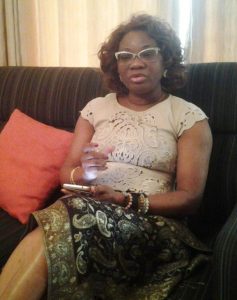
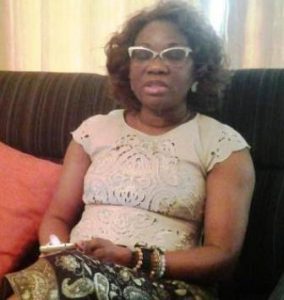


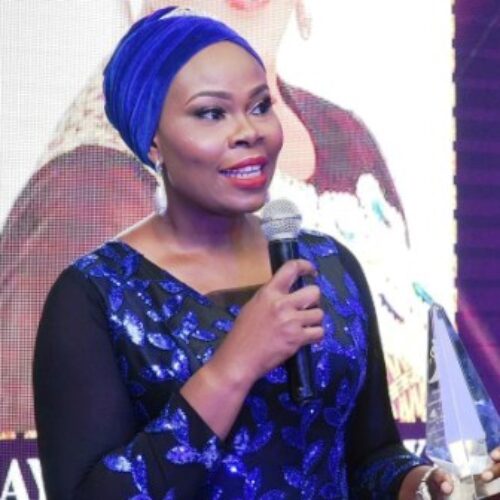
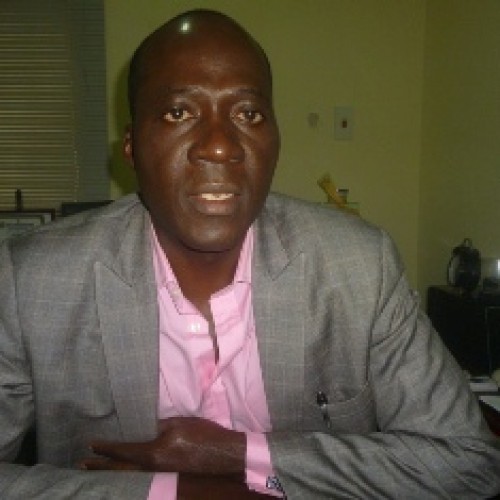
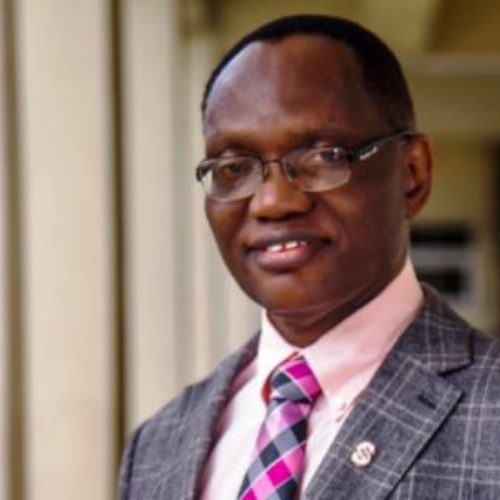


0 Comments
No Comments Yet!
You can be first to comment this post!